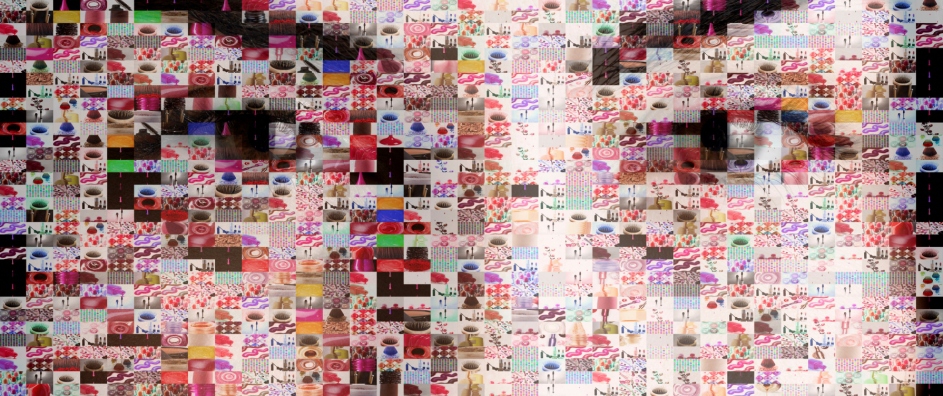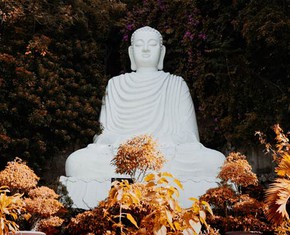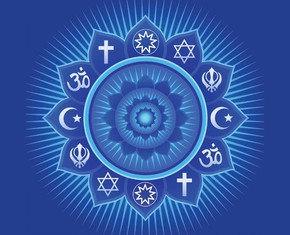The views expressed in our content reflect individual perspectives and do not represent the authoritative views of the Baha'i Faith.
When we buy something new and unfamiliar, what do we do before we use it? If it’s simple, we read a few lines of directions; if it needs assembly, we follow a diagram; if it’s more complex in nature, we consult the owner’s manual to help us figure things out. Usually the people who created the product write the instructions and keep them up to date. In this way, we don’t harm ourselves and others, and we get the most use out of our investment.
Some of us, however, just don’t take the time to read the instructions. Even though they exist to help us, we may choose to tough it out on our own, often with the unhappy result of malfunction or a premature donation to the trash.
Yes, we can probably skip the toaster instructions. But many of us decide not to read the owner’s manual, given to us by God our Creator, for the most important thing we will ever have – our own human spiritual experience.
Baha’is believe the voluminous writings of Baha’u’llah, the founder of the Baha’i Faith, have provided us with an up-to-date owner’s manual for human life at this time in history:
It is Our wish and desire that every one of you may become a source of all goodness unto men, and an example of uprightness to mankind. Beware lest ye prefer yourselves above your neighbours. Gleanings, p. 315.
But how do we display goodness and uprightness in the lives we lead every day? In a Tablet, Baha’u’llah provides more detailed guidance as he outlines six radiant ornaments (Tarazat) of human behavior.
The first ornament:
“. . . man should know his own self and recognize that which leadeth unto loftiness or lowliness, glory or abasement, wealth or poverty.” – Tablets of Baha’u’llah Revealed After the Kitab-i-Aqdas, p. 36.
At maturity, each of us needs to make a living to support ourselves and our families. Baha’u’llah advises us here that having a craft or profession which benefits and serves humanity can lift humankind as a whole and advance the human condition.
The next ornament calls us,
“. . . to consort with the followers of all religions in a spirit of friendliness and fellowship . . . to observe fairness in all matters.” – Ibid, p. 36-37.
 When we build borders around our comfort zone and only associate with those who look like us, think like us and believe as we do, we deny ourselves the opportunity to expand ourselves beyond our “own tribe”. To have unity and peace in our world today, we need to know each other and free ourselves from the bonds of prejudice and intolerance. Association creates and reinforces those bonds of unity.
When we build borders around our comfort zone and only associate with those who look like us, think like us and believe as we do, we deny ourselves the opportunity to expand ourselves beyond our “own tribe”. To have unity and peace in our world today, we need to know each other and free ourselves from the bonds of prejudice and intolerance. Association creates and reinforces those bonds of unity.
Baha’u’llah’s third ornament is a good character:
The light of a good character surpasseth the light of the sun and the radiance thereof. Whoso attaineth unto it is accounted as a jewel among men. The glory and the upliftment of the world must needs depend upon it. – Ibid, p. 37.
This ornament focuses on justice and fairness, which Baha’u’llah asks us to seek at all times and under all conditions.
The fourth ornament states that:
Trustworthiness is the greatest portal leading unto the tranquility and security of the people. In truth the stability of every affair hath depended and doth depend upon it.” – Ibid, p. 38.
This virtue brings light to all human endeavors and contributes to our ability to maintain peaceful relationships personally and in our communities at large. Trust as a foundation leads to successful interactions and outcomes.
The fifth Taraz (ornament) concerneth the protection and preservation of the stations of God’s servants. One should not ignore the truth of any matter, rather should one give expression to that which is right and true. – Ibid, p. 39.
The Baha’i teachings say that every person, no matter who they are, should be dealt with fairly, treated with respect and justice, and not abused.
Knowledge forms the sixth ornament of a good character:
“Knowledge is one of the wondrous gifts of God. It is incumbent upon everyone to acquire it.” Ibid, p. 40.
Knowledge and education combat ignorance and the actions which flow from it. Baha’is believe that God makes knowledge available to us, and that as human beings we must seek it.
In the same way we resist reading the instructions that come with every new possession we purchase, we may also resist availing ourselves of the spiritual assistance God gives us through the Messengers He sends.
These “ornaments” can enlarge our perception of our own lives, and will not only benefit us in our own personal space, but will then radiate out to those we love and the world at large. When we educate ourselves to operate at our full capacity and get the most from our own human spiritual experience, we can make those ornaments, and our own inner character, reflect the dazzling light of spiritual power and wisdom.
















Comments
Sign in or create an account
Continue with Googleor